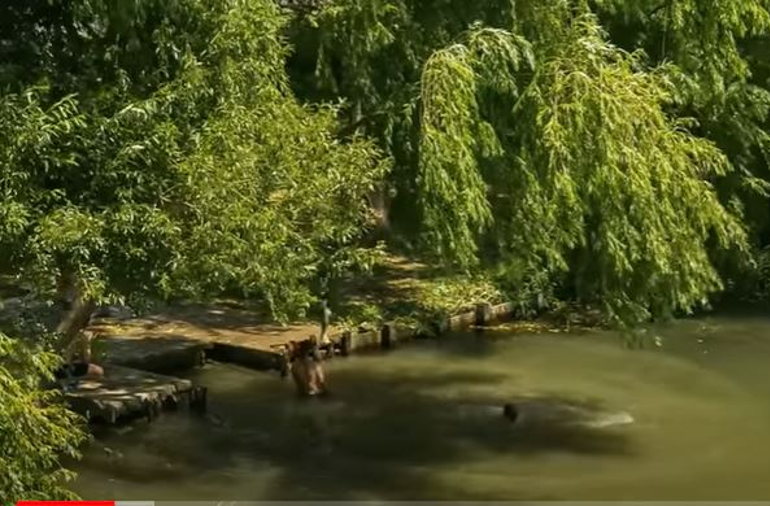La Jornada, July 12, 2022 | By Victor M. Toledo*
If you judge that the world is dominated by the American, Russian, Chinese or European empire, you are completely wrong. The real (silent and invisible) empire is that of the corporations (giant companies and banks) that today control practically all fields of human activity, including countless national governments.
It is about capitalism in its corporate phase, which has reached a planetary scale and explains the phenomenon of globalization and the crisis of modern civilization (The global crisis is a crisis of civilization: a political ecology perspective, Victor M. Toledo, January 2022).
How to deal with this fearsome situation? In various parts of the world, the idea has emerged — and is increasingly shared — that the only way to deal with the situation is by breaking out of the straits of corporate domination through organization and social empowerment. This implies avoiding the restrictive mechanisms of corporations in such matters as food, health, transportation, energy, water, services and communication, and the implementation of actions for self-government, self-sufficiency, self-management and self-defense.
On June 30, we participated in a discussion about the film Local Planet: A Quiet Revolution, a 50-minute documentary produced by the organization Local Futures. The documentary is extraordinary because it manages to bring together the voices of some 40 renowned thinkers, leaders, activists, scientists, philosophers and artists from 26 countries who together outlined a radical alternative to change the world. Among others, the documentary included Noam Chomsky, Jane Goodall, Naomi Klein, David Holmgren, Vandana Shiva, Rob Hopkins (founder of the Transition Towns movement), Masahiko Yamada (former minister of agriculture of Japan), Joanna Macy (author of the famous book The Work That Reconnects) and Helena Norberg-Hodge, the founder of Local Futures.
The documentary unmasks globalization as an insane and perverse process and traces a clear path of transformation starting from the local. The documentary denounces the corporate dictatorship that dominates without scruples, corrupts politicians, evades taxes, hides its fortunes in tax havens, and puts the rules of global trade in its favor. Then again, the local vision rescues political action to the realm of a concrete and human scale, where individuals take action face to face and return to communality, to the collective, to mutual aid and solidarity, which was the secret formula by which humanity managed to evolve for 295,000 years.
In addition to the conceptual and philosophical commentary, the documentary offers successful examples in Bristol, Detroit, Budapest, Ladakh, Nova Scotia and Sierra Norte de Puebla, Mexico. The case of the Balle project on the border of Canada and the United States stands out as a business alliance for a local and regional economy that is more profitable than the conventional arrangement.
These initiatives are in the same vein as two other major anti-globalization projects:
The ICCA Consortium and Agroecology.
The ICCA is the largest indigenous organization in the world with a presence in dozens of countries and hundreds of communities, and it proposes the creation of territories of life based on a heretofore unimagined reality, which was uncovered by science:
taken together, the world´s 7,000 indigenous peoples possess a territory equal to between 25 and 32 percent of the planet’s land surface.
The consortium promotes these territories of life where communities and peoples govern, manage and conserve their environments (landscapes, habitats, species, resources) in an appropriate manner.
Meanwhile, the agroecological movement — in opposition to globalized agro-industrial systems dominated by corporations for three decades — has won important battles in academia, international institutions (the FAO [UN Food and Agriculture Organization] accepted their existence in 2015) and in the scale of food production, circulation and consumption, mainly in Latin America, India, and countries in Europe and Africa. Agroecology has been adopted by Via Campesina, the powerful union that brings together 182 organizations from 80 countries and 200 million members, as its main instrument of political struggle.
We have, then, before us an option to confront global madness for the first time from a consensual perspective, one that outlines successful paths of all kinds under common concepts, and that shines a light on the possibility of a different future. It is about multiplying, expanding and connecting the thousands of experiences that already exist — experiences that appear as islands of hope in an aggressive and stormy sea. From all that has been seen, it can be affirmed that the future of the planet will be local, or it will not be.
Translated by Jane K. Brundage
Related:
> The Great Acceleration and Time Under Capitalism, Victor M. Toledo in La Jornada, June 28, 2022.
> Spirituality and Defense of the Earth, Victor M. Toledo in La Jornada, June 14, 2022.
> A Brief History of Consumer Culture by Kerryn Higgs, The MIT Press Reader, June 30, 2022.
Teaser photo credit: Screen shot from the movie.





